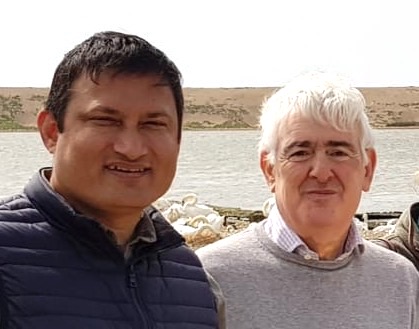
BUILDING FACES BUILDING FUTURES
Combating facial injury, disfigurement and oral cancer in the most socially important part of our bodies – the head, face and mouth
The head and face are the only parts of our body we cannot hide. They convey our emotions and innermost feelings. We often judge each other on the basis of appearance, making assumptions on a whole range of issues.
People suffer the consequences of facial diseases, injuries and disfigurement every day. In Nepal oral and throat cancer is second most common cancer in all population every year. The silent epidemic of road traffic injury is the main cause in young people in Nepal of sustaining serious facial injuries. This will remain the case until crash helmets and seat belts are worn.
Not many people receive treatment for facial disfigurement, such as cleft lip and palate, due to lack of trained manpower.
Despite the severity of these issues, this remains a much neglected area of care, leaving thousands of those unfortunate enough to be affected with little hope for the future.
In Nepal not enough is known about head and facial disease, injury and deformity, their psychological and emotional impact and, critically, which treatments are most effective. The Craniofacial Centre Nepal is the only charitable hospital in Nepal solely dedicated to the reduction and management of facial injuries and diseases. It is working to take the lead in education and research to improve the physical and psychological treatment of all victims of oral cancer and other craniofacial diseases.
The establishment of the Craniofacial Centre was the brainchild of consultant Craniofacial Surgeon, Sunil Sah, who launched the centre in 2017, to improve the quality of care in Nepal and in particular, Province 2. Over the years, he and his colleagues came to realise that very little teaching, training and research was being conducted into the treatment of facial and craniofacial diseases such as cleft lip, oral cancer and facial injuries, everyday problems that they could be prevented.
We have established a group of surgeons from Nepal, India and the UK, who together will provide and further develop a surgical service and training of local surgeons, and all the associated care as well educating a wider public about the risks of the prevention of smoking, chewing tobacco, pan, gutka and binge drinking amongst teenagers.
In addition to surgeons who volunteer their services, former patients are also providing support to newly diagnosed patients and their families through a support network. The emotional and psychological impact of surgery is often just as traumatic as the procedure itself.
The centre is funded by national and international donors. The centre work is free to those who cannot afford to pay but makes charges to those who can.
